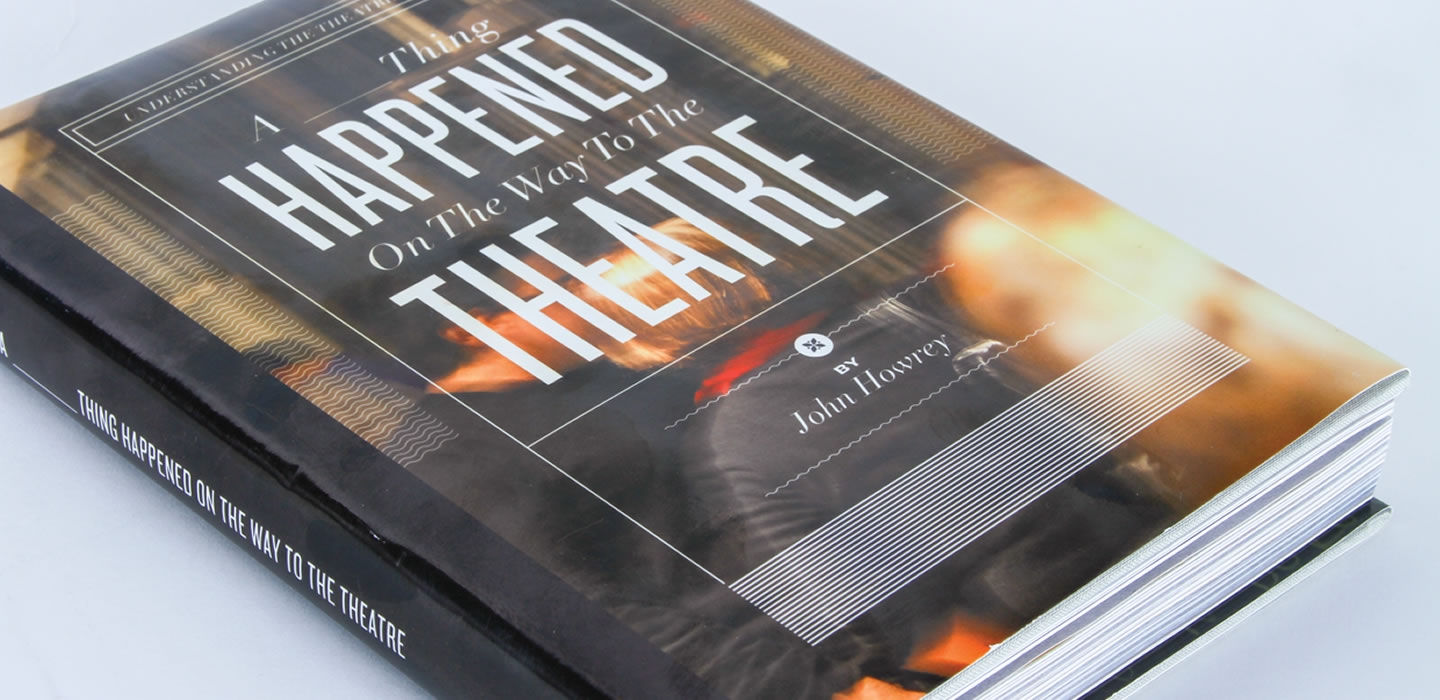
You will document your thesis research and project work during two semesters of disciplined writing courses. The first course helps you build a strong foundation for your thesis document through regular reading, writing, and editing. The second course helps you craft a document that reflects the depth, range, and sensitivity of your thesis research and that will stand as a lasting contribution to the discipline.
Why write? Writing requires both intellectual rigor and careful reflection that influences enormously how and what you think about your work. Writing can unearth connections, expose weaknesses, reveal strengths, confirm suspicions, and inspire brilliance. Ideally, writing can fuse thinking to making, enrich design work, and create authentic knowledge. Writing is the visible expression of language.
One of the more challenging things about the DMI program is the fact that each student is required to write, design and print a (considerable) book documenting his or her thesis work, as well as to give a formal thesis defense presentation in order to successfully and officially complete the program. This is on top of the actual project work that makes up the students’ thesis oeuvre. Why does a “Dynamic Media” program, with all of its forward thinking and talk of things like algorithmic design and telepathic interfaces, require its students to present their work in a decidedly Old Media format? I think it’s because the program is ultimately about the study of media, and how ideas expressed in different media forms have different strengths and effects.
My thesis, “Notes and Errata on Message and Meaning” involved semi-large scale video installation work, which I presented in an exhibition. In this context, I was working with physical space, light, and sound. When it was time to write about the work and present it in a book format, it created an entirely different challenge: how do you take something that’s about crafting an experience and Being There and the ephemeral, and present it in what is essentially a linear format? How do you represent the unrepresentable? And so forth.
I don’t mean to imply that I figured it out. But the process of attempting to figure it out required that I pare the conceptual components of my work down into communicable chunks, and then to design a system for their communication within the parameters of a book. This level of conceptual pruning and media wrangling makes designers and artists more nubile, in a micro age when being competent and literate in a myriad of media forms seems exponentially less exceptional and infinitely more essential.
Chris Field (MFA 2011)
Writing a thesis for me, was a recursive process, so it was important to carefully plan the writing of the thesis at an early stage, and to monitor progress against that plan. Just as it is important to plan the writing of the thesis, it is also important to plan the structure of the thesis itself. Because a thesis is a large document, it is paramount that the thesis is written in such a way that is clear to the reader.
Another important part of the process of writing my thesis was receiving feedback from peers and supervisors and incorporating it in subsequent drafts or documentation. Understanding the feedback that has been provided is critical, and where any uncertainty exists, it is best to seek clarification. The process of producing drafts is part of the recursive process of writing a thesis. Regardless of the documentation that is being produced, whether it is a research proposal or a full-blown thesis, refining the writing on the basis of feedback received is an iterative process that constantly seeks to narrow the focus of the piece of writing, and to clarify the ideas contained within it.
Joseph Liberty (MFA 2011)
Looking at my thesis book three months after graduating, I am struck by how quickly I made the transition from the intense, in-the-moment process of writing and research to a newfound ability to see my work as a cohesive and completed whole. While it was happening, making my DMI thesis book felt like being trapped inside a peculiar microcosm made of the disorganized minutiae of my thoughts and ideas. With a little distance, it turns out that the thesis is in fact a meditation on subjects that have defined my studies and approach to the world for my whole life, even before I was consciously aware of their importance.
Designers and artists all struggle with questions like, “where do my ideas come from?” “which parts of myself does my work reflect?” “why am I doing this?” I don’t think it’s possible for these questions to be answered finally, once and for all. I do think it’s possible to answer them for a time, through thesis writing, a process that is both a difficult learning experience and a rare luxury.
Alison Kotin (MFA 2011)
